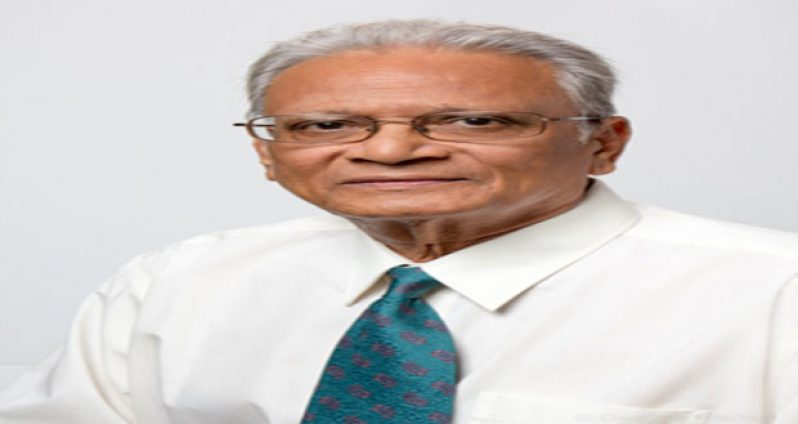ONE factor which many have claimed to be the source of problematic conditions existing at the University of Guyana (UG) is the politicisation of the council -– the highest autonomous body governing the institution.
But Education Minister, Dr. Rupert Roopnaraine, during a recent interview with this publication, said that while he feels very strongly about this issue, he is convinced that it is being exaggerated in this regard.
Dr. Roopnaraine said he doesn’t believe that the main problem plaguing the educational institution is that of a politicised council, though it is a contributing factor. But while this still poses some amount of challenges — as was experienced in the past — there is little that could be done, since the composition of the council is stipulated by the University of Guyana Act.
The Minister opined that when the present council expires, in a short while, efforts will be made to ensure that a council which enjoys the confidence of the students and staff is installed.
“We will have a new council, and I think we have learned from our past experiences and past councils, and we’re going to try to ensure that we have a council that enjoys the confidence of the teaching staff and the confidence of the students,” Dr Roopnaraine told the Chronicle.
In his address to the National Assembly last Thursday, the Minister had revealed that the role of the Ministry of Education under this Administration is going to be far more expansive than simply addressing nursery to tertiary concerns, as challenging as those will be.
“There will also be the challenge of fundamentally changing how Government operates, so that we can work with our fellow state institutions in crafting a bold and innovative new pedagogy of development, of citizenship, of tolerance, of progress; one that connects to, and resonates with, all our people,” Dr. Roopnaraine disclosed in his address.
Time and time again, he said, Guyana has proven that it possesses individuals within the society who are capable of excelling despite the general conditions; capable of rising above the tide of stagnating and worsening education delivery.
He posited that what is needed is a “new wave of reforms” in which “all boats rise equally” and provide an even higher point of departure for those who would excel. Excellence, he concluded, must be our goal.
The council is composed as follows: the Chancellor; the Pro-Chancellor; the Principal; Vice-Chancellor; one person nominated by the Committee of Deans; one person nominated by the Academic Board; one person nominated by the Guild of Graduates; one person nominated by the Students’ Society; one person nominated by the University of Guyana Workers Union; one representative from the Ministry of Education and Cultural Development, and one from the Ministry of Finance; one person nominated by the political party in office; one person nominated by the Minority Leader; four persons nominated by such non-governmental organisations as in the opinion of the Minister are most representative of the interests of women, farmers, Amerindians and business; one person nominated by the Guyana Trades Union Congress; three persons appointed by the Education Minister, who, in his considered opinion, can contribute significantly to the University in the fields of medicine and law; six persons nominated by the Chancellor, whose collective presence shall represent the following places: (i) the Association of Universities and Colleges of Canada; (ii) the American Association of State Colleges and Universities; (iii) the Committee for International Co-operation in Higher Education of the United Kingdom; (iv) the University of the West Indies.
By Ravin Singh



.jpg)










